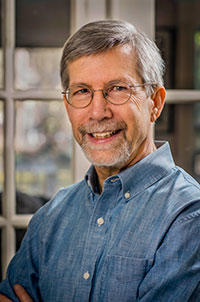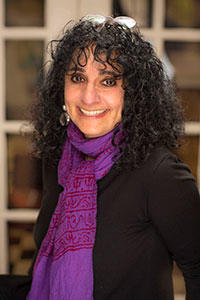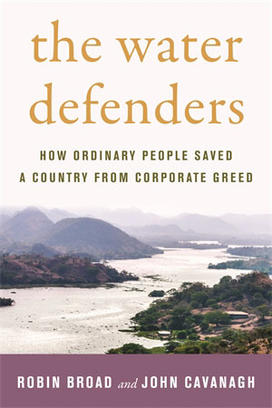Robin Broad *83 and John Cavanagh *80 Recount an Epic Battle for Clean Water

In the early 2000s, Pacific Rim mining company dominated the local economy while polluting El Salvador’s fresh water sources. Robin Broad *80 *83 and John Cavanagh *80, partially relying on their own experience as international allies, depict the story of local villagers organizing and succeeding against powerful international companies.
The authors: Robin Broad *80 *83 is an expert in international development and was awarded a prestigious Guggenheim fellowship for her work surrounding mining in El Salvador, as well as two previous MacArthur fellowships. A professor at American University, she served as an international economist in the U.S. Treasury Department, in the U.S. Congress, and at the Carnegie Endowment for International Peace.

Together they have been involved in the Salvadoran gold mining saga since 2009. They helped build the network of international allies that spearheaded the global fight against mining in El Salvador. They have co-authored several previous books together.
Opening lines: For nearly two weeks, Marcelo Rivera’s family could not find him. Then, on June 29, they received the phone call they had been dreading. The anonymous caller was brief. There was a body in an old, abandoned well just west of the Rivera hometown of San Isidro, Cabañas. The well was near the spot where Marcelo had last been seen some twelve days earlier, getting off the bus at a turnoff to the capital city.
During those twelve days, Marcelo’s family and friends had been at wit’s end, searching frantically, desperately, for him. They had spread news of his disappearance in all the barrios of San Isidro and nearby towns. They had called the police for over a week, to no avail. The Rivera family had even filed a formal complaint with El Salvador’s attorney general, pleading for him to conduct a search and an investigation into Marcelo’s disappearance. But another poor person gone missing up in the rural north meant little to the authorities.

Thus Marcelo Rivera became the first of several water defenders to be assassinated in the twenty-first-century fight over mining in northern El Salvador.
Though we never met Marcelo, we have been haunted by him and the circumstances of his death ever since. Who killed Marcelo? And why?
Perhaps you know the difference between a tortilla and a pupusa. Or perhaps, like we had done, you are entering this story without a clue. Perhaps El Salvador is not even on your radar screen. Or perhaps El Salvador is on your radar screen only because of gangs or immigrants who trek north. But, really, that does not matter. Certainly, on one level, this is a story about El Salvador. At the same time, it is not just about El Salvador. This is a David-versus-Goliath story about a battle between a country and a foreign mining company. But it is also about how global corporations—be they Big Gold or Big Pharma or Big Tobacco or Big Oil or Big Banks— move into poorer communities in countries all over the world.
Marcelo’s story—before and after his murder—is about the struggle for clean and affordable water everywhere. It is also a story about workers and communities defending their air and land, their health and their climate, and their rights to defend themselves against corporate incursion. About how to prioritize those rights and the common good versus the usual prioritization of the profits of big corporations and their owners. It is certainly a story about gold—and when and why we should leave it in the ground. But it could be about coal or natural gas or other fossil fuels. About whether we measure progress in aggregate financial terms or through the well-being of people and the planet. About who gets to make the decisions that affect our lives.
To say that this story of the Water Defenders versus Big Gold holds keys to reversing the outsized power of global corporations today is not an exaggeration. You may find yourself surprised by the relevance of the strategies of the water defenders in El Salvador, whether your focus is on a Walmart in Washington, DC; a fracking company trying to expand in Texas or Pennsylvania; or petrochemical companies outside New Orleans. Along the way—however clichéd the quote attributed to Margaret Mead may have become—you may also find yourself inspired by a “small group of thoughtful, committed citizens” who stand up to corporate power.
Review: “Bravo to the courageous Salvadorans—and their likely and unlikely allies—who prove that victories against overwhelming odds are possible. If they can defeat Big Gold, then surely, we can have other big wins too. The water defenders of El Salvador and their international partners provide a powerful guidebook, poignantly retold by Broad and Cavanagh, of how the struggles for justice in the United States can link with allies abroad to build power and win.” —Opal Tometi, co-founder, Black Lives Matter











No responses yet